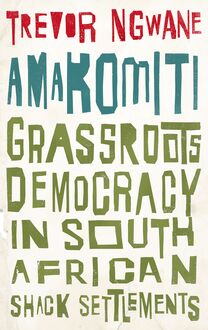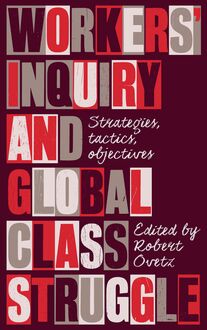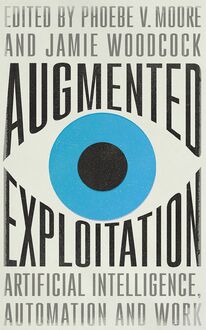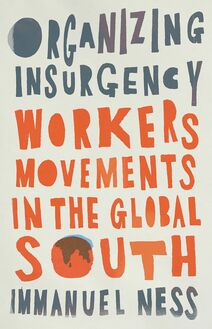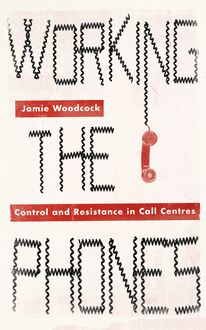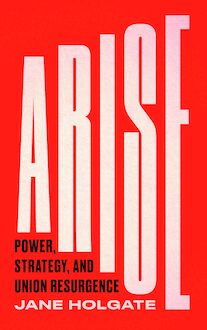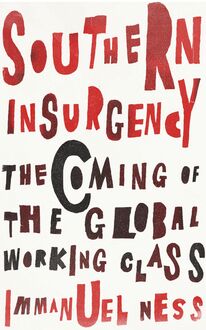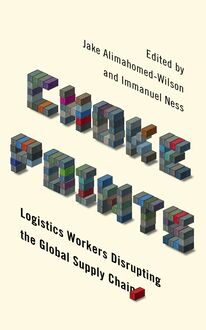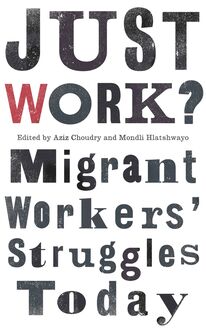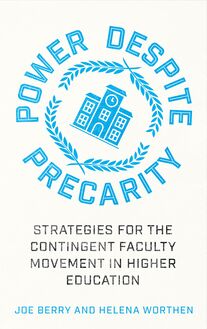-
 Univers
Univers
-
 Ebooks
Ebooks
-
 Livres audio
Livres audio
-
 Presse
Presse
-
 Podcasts
Podcasts
-
 BD
BD
-
 Documents
Documents
-
- Cours
- Révisions
- Ressources pédagogiques
- Sciences de l’éducation
- Manuels scolaires
- Langues
- Travaux de classe
- Annales de BEP
- Etudes supérieures
- Maternelle et primaire
- Fiches de lecture
- Orientation scolaire
- Méthodologie
- Corrigés de devoir
- Annales d’examens et concours
- Annales du bac
- Annales du brevet
- Rapports de stage
La lecture à portée de main
Vous pourrez modifier la taille du texte de cet ouvrage
Découvre YouScribe en t'inscrivant gratuitement
Je m'inscrisDécouvre YouScribe en t'inscrivant gratuitement
Je m'inscrisEn savoir plus
Vous pourrez modifier la taille du texte de cet ouvrage
En savoir plus

Description
Higher education is the site of an ongoing conflict. At the heart of this struggle are the precariously employed faculty ‘contingents’ who work without basic job security, living wages or benefits. Yet they have the incentive and, if organized, the power to shape the future of higher education.
Power Despite Precarity is part history, part handbook and a wholly indispensable resource in this fight. Joe Berry and Helena Worthen outline the four historical periods that led to major transitions in the worklives of faculty of this sector. They then take a deep dive into the 30-year-long struggle by California State University lecturers to negotiate what is recognized as the best contract for contingents in the US.
The authors ask: what is the role of universities in society? Whose interests should they serve? What are the necessary conditions for the exercise of academic freedom? Providing strategic insight for activists at every organizing level, they also tackle 'troublesome questions’ around legality, union politics, academic freedom and how to recognize friends (and foes) in the struggle.
Photographs
Series Preface
Acknowledgements
Abbreviations and Acronyms
Introduction
PART I - THE CASE OF THE LECTURERS IN THE CSU SYSTEM
1. Student Strikes and Union Battles
2. Layoffs and Hard Years for Organizing
3. Revolution in the Union
4. “They have nothing to teach us”
PART II - HIGHER ED WAS NEVER A LEVEL TERRAIN OF STRUGGLE
5. Four Transitions and How Casualization Served Managers
PART III - WHAT WE WANT AND WHAT THE CFA GOT
6. Blue Sky #1 Organizing and Economics
7. Blue Sky #2 Job Security, Academic Freedom and the Common Good
8. Beyond the Sausage-making: A Close Look at the CFA-CSU Contract
PART IV - THE DIFFICULTY OF THINKING STRATEGICALLY
9. Strategies Emerging From Practice
10. The Contingent Faculty Movement as a Social Movement
PART V - SEVEN TROUBLESOME QUESTIONS
11. What Gets People Moving?
12. Who is the Enemy? Who are Our Allies?
13. What is “Professionalism” for Us?
14. How Does It Feel?
15. Is this legal?
16. What About Leftists?
17. How Do We Deal With Union Politics?
PART VI - USING THE POWER WE HAVE
18. Hopes and Dangers
Essential Terms
John Hess: A Life in the Movement
Notes
Bibliography
Index
Sujets
Social History
Modern
HISTORY
EDUCATION
Employabilité, métiers et formations
USA
United States of America
Universidad Estatal de California
Movimiento sindical
21st century
Sociology
Adjunct
Higher
History of education
Modern history
General officer
California State University
Trade union
Higher education
Economics
Business
LAW
General
États-Unis
Université d'État de Californie
Obermodern-Zutzendorf
Labor
Administration
Informations
| Publié par | Pluto Press |
| Date de parution | 20 août 2021 |
| Nombre de lectures | 0 |
| EAN13 | 9780745345543 |
| Langue | English |
| Poids de l'ouvrage | 1 Mo |
Informations légales : prix de location à la page 0,0748€. Cette information est donnée uniquement à titre indicatif conformément à la législation en vigueur.
Extrait
Power Despite Precarity
A masterful look at the challenges involved with organizing workers in higher education. Berry and Worthen provide excellent recommendations regarding vision and strategy, making the book valuable beyond the field of higher education.
-Bill Fletcher, Jr., author of They re Bankrupting Us: And Twenty Other Myths About Unions
Academic precarity screws over college and university teachers, partly via obfuscation about whether better working conditions are possible and partly by stealing our access to institutional memories of how precarious workers have risen up to win those better conditions-or something closer to them-in the past. Who fought for something better? How did they define what better meant? What strategy and tactics did they use to make progress? What didn t work, wasn t worth fighting for, or wasted time along the way? Power Despite Precarity is an essential primer on these questions and more; a must-read for new adjuncts and organizers, as well as for movement veterans seeking a clear and coherent telling of the story of which they are a part, and some sparing but wise words of advice along the way.
-Alyssa Picard, Director, American Federation of Teachers higher education division
Empowers us to fight for the higher education and unions we believe in, uniting theory and practice to chart an inspiring path toward labor and education justice.
-Mia L. McIver, Ph.D., Lecturer, UCLA, President, University Council-American Federation of Teachers
Written from both an organizer s and historian s perspective, Power Despite Precarity is essential reading for anyone working in higher education who wants a better world and wonders what it takes. Berry and Worthen provide a handbook on how the growing number of contingent faculty can unite in common cause. While it is about education, many of the lessons dealing with internal problems inside unions are not issues confined to the education sector (alas) and I especially enjoyed those parts.
-Elaine Bernard, Fellow, Labor Worklife Program, Harvard Law School
This is not just an important book but an essential one for anyone concerned about higher education. It is impossible to separate the working conditions of faculty from the learning conditions of students, and Berry and Worthen explain how it is possible to transform both for the better of all.
-Maria Maisto, President, New Faculty Majority
Wildcat: Workers Movements and Global Capitalism
Series Editors:
Immanuel Ness (City University of New York)
Peter Cole (Western Illinois University)
Raquel Varela (Instituto de Hist ria Contempor nea [IHC] of Universidade Nova de Lisboa, Lisbon New University)
Tim Pringle (SOAS, University of London)
Also available:
The Cost of Free Shipping: Amazon in the Global Economy
Edited by Jake Alimahomed-Wilson and Ellen Reese
Choke Points: Logistics Workers Disrupting the Global Supply Chain
Edited by Jake Alimahomed-Wilson and Immanuel Ness
Dying for an iPhone: Apple, Foxconn and the Lives of China s Workers
Jenny Chan, Mark Selden and Pun Ngai
Just Work? Migrant Workers Struggles Today
Edited by Aziz Choudry and Mondli Hlatshwayo
Wobblies of the World: A Global History of the IWW
Edited by Peter Cole, David Struthers and Kenyon Zimmer
Arise: Power, Strategy and Union Resurgence
Jane Holgate
Augmented Exploitation: Artificial Intelligence, Automation and Work
Edited by Phoebe V. Moore and Jamie Woodcock
Organizing Insurgency: Workers Movements in the Global South
Immanuel Ness
Southern Insurgency: The Coming of the Global Working Class
Immanuel Ness
Amakomiti: Grassroots Democracy in South African Shack Settlements
Trevor Ngwane
Workers Inquiry and Global Class Struggle: Strategies, Tactics, Objectives
Edited by Robert Ovetz
The Spirit of Marikana: The Rise of Insurgent Trade Unionism in South Africa
Luke Sinwell with Siphiwe Mbatha
Solidarity: Latin America and the US Left in the Era of Human Rights
Steve Striffler
Working the Phones: Control and Resistance in Call Centres
Jamie Woodcock
Power Despite Precarity
Strategies for the Contingent Faculty Movement in Higher Education
Joe Berry and Helena Worthen
First published 2021 by Pluto Press
345 Archway Road, London N6 5AA
www.plutobooks.com
Copyright Joe Berry and Helena Worthen 2021
The right of Joe Berry and Helena Worthen to be identified as the authors of this work has been asserted in accordance with the Copyright, Designs and Patents Act 1988.
British Library Cataloguing in Publication Data
A catalogue record for this book is available from the British Library
ISBN 978 0 7453 4553 6 Hardback
ISBN 978 0 7453 4552 9 Paperback
ISBN 978 0 7453 4556 7 PDF
ISBN 978 0 7453 4554 3 EPUB
ISBN 978 0 7453 4555 0 Kindle
This book is printed on paper suitable for recycling and made from fully managed and sustained forest sources. Logging, pulping and manufacturing processes are expected to conform to the environmental standards of the country of origin.
Typeset by Stanford DTP Services, Northampton, England
Simultaneously printed in the United Kingdom and United States of America
Contents
Photographs
Series Preface
Acknowledgements
Abbreviations and Acronyms
Introduction
PART I THE CASE OF THE LECTURERS IN THE CSU SYSTEM
1 Student Strikes and Union Battles
2 Layoffs and Hard Years for Organizing
3 Revolution in the Union
4 They have nothing to teach us
PART II HIGHER ED WAS NEVER A LEVEL TERRAIN OF STRUGGLE
5 Four Transitions and How Casualization Served Managers
PART III WHAT WE WANT AND WHAT THE CFA GOT
6 Blue Sky #1 Organizing and Economics
7 Blue Sky #2 Job Security, Academic Freedom and the Common Good
8 Beyond the Sausage-making: A Close Look at the CFA-CSU Contract
PART IV THE DIFFICULTY OF THINKING STRATEGICALLY
9 Strategies Emerging From Practice
10 The Contingent Faculty Movement as a Social Movement
PART V SEVEN TROUBLESOME QUESTIONS
11 What Gets People Moving?
12 Who is the Enemy? Who are Our Allies?
13 What is Professionalism for Us?
14 How Does It Feel?
15 Is this legal?
16 What About Leftists?
17 How Do We Deal With Union Politics?
PART VI USING THE POWER WE HAVE
18 Hopes and Dangers
Essential Terms
John Hess: A Life in the Movement
Notes
Bibliography
Index
Photographs
(pages 149-154)
1a. Buttons from contingent faculty movement, mainly from the CFA. 1b. Buttons and ephemera from separate contingent faculty movement campaigns since 1997 in US, Canada and Mexico.
1c. Logo from the Coalition of Contingent Academic Labor, used from the late 1990s to the present in various campaigns.
1d. Posters, buttons and news articles from the CFA.
1e. Protest against massive class cuts and layoffs at City College of San Francisco, 2021.
2. Gary Zabel and Harry Brill, early COCAL founders, at UMass Boston in the late 1990s.
3a. John Hess, circa 2005.
3b. The CFA s Dog and Pony Show satire on management presentations and programs.
3c. CFA San Francisco State University Action.
3d. Jonathan Karpf and Alison McKee, Professor of Film Studies in the Department of Radio, Television and Film at San Jose State University and Chapter Vice-Chair for CFA with a Credible Strike Threat at San Jose State University.
3e. The CFA at California State Capitol in Sacramento, CA.
3f. Mayra Besosa (chair of AAUP Committee on Contingency and leader of the CFA from CSU San Marcos) and John Hess.
3g. CFA Lecturers Council Meeting.
3h. CFA leaders from various campuses, delegates to the Edmonton COCAL conference.
4a. COCAL VI march in downtown Chicago to five higher-ed institutions to present report cards on treatment of contingent faculty.
4b. Marchers preparing at Roosevelt U. Joe Berry speaking to COCAL VI rally before the march.
4c. Joe Berry and Christine Pfeiffer presenting report card at Columbia College, Chicago.
4d. Joe Berry and Frank Brooks presenting report card at Roosevelt University.
4e. CFA delegates to COCAL VI, Chicago.
4f. March stops in front of Harold Washington College.
5a. Mexican delegation at University of Alberta, Edmonton.
5b. Ontario Public Service Employees Union action to gain bargaining rights and contract for contingent faculty and staff in colleges in Ontario.
5c. Action at George Brown College, Toronto, Ontario. Contract faculty is a Canadian term for contingent faculty, referring to a limited contract.
5d. Canadian student support action.
5e. Ontario colleges strike action.
6a. Plenary session at COCAL X.
6b. Arturo Ramos Alamazan 2004 in Chicago.
6c. Welcome banquet sponsored by AAPAUNAM, and STUNAM.
6d. Open COCAL X International Advisory Committee discussion to evaluate conference and plan future actions.
6e. Sylvain Marois, FNEEQ and Universit Laval Qu bec; Arturo Ramos Alamaz n, Maria Teresa Lechuga, David Rives, Oregon Federation of Teachers and COCAL Webmaster; members of the COCAL International Committee.
6f. Lunch gathering of partial COCAL Advisory Committee in Mexico. 6g. Maria Teresa Lechuga and Mary Ellen Goodwin.
6h. Marcia Newfield, vice president of Professional Staff Congress, AFT, CUNY and COCAL International Advisory Committee.
Series Preface
Workers movements are a common and recurring feature in contemporary capitalism. The same militancy that inspired the mass labor movements of the twentieth century continues to define worker struggles that proliferate throughout the world today.
For more than a century, labor unions have mobilized to represent the political-economic interests of workers by uncovering the abuses of capitalism, establishing wage standards, improving oppressive working conditions, and bargaining with employers and the state. Since the 1970s, organized labor has declined in size and influence as the global power and influence of capital has expanded dramatically. The world over, existing unions are in a condition of fracture and turbulence i
-
 Univers
Univers
-
 Ebooks
Ebooks
-
 Livres audio
Livres audio
-
 Presse
Presse
-
 Podcasts
Podcasts
-
 BD
BD
-
 Documents
Documents
-
Jeunesse
-
Littérature
-
Ressources professionnelles
-
Santé et bien-être
-
Savoirs
-
Education
-
Loisirs et hobbies
-
Art, musique et cinéma
-
Actualité et débat de société
-
Jeunesse
-
Littérature
-
Ressources professionnelles
-
Santé et bien-être
-
Savoirs
-
Education
-
Loisirs et hobbies
-
Art, musique et cinéma
-
Actualité et débat de société
-
Actualités
-
Lifestyle
-
Presse jeunesse
-
Presse professionnelle
-
Pratique
-
Presse sportive
-
Presse internationale
-
Culture & Médias
-
Action et Aventures
-
Science-fiction et Fantasy
-
Société
-
Jeunesse
-
Littérature
-
Ressources professionnelles
-
Santé et bien-être
-
Savoirs
-
Education
-
Loisirs et hobbies
-
Art, musique et cinéma
-
Actualité et débat de société
- Cours
- Révisions
- Ressources pédagogiques
- Sciences de l’éducation
- Manuels scolaires
- Langues
- Travaux de classe
- Annales de BEP
- Etudes supérieures
- Maternelle et primaire
- Fiches de lecture
- Orientation scolaire
- Méthodologie
- Corrigés de devoir
- Annales d’examens et concours
- Annales du bac
- Annales du brevet
- Rapports de stage
